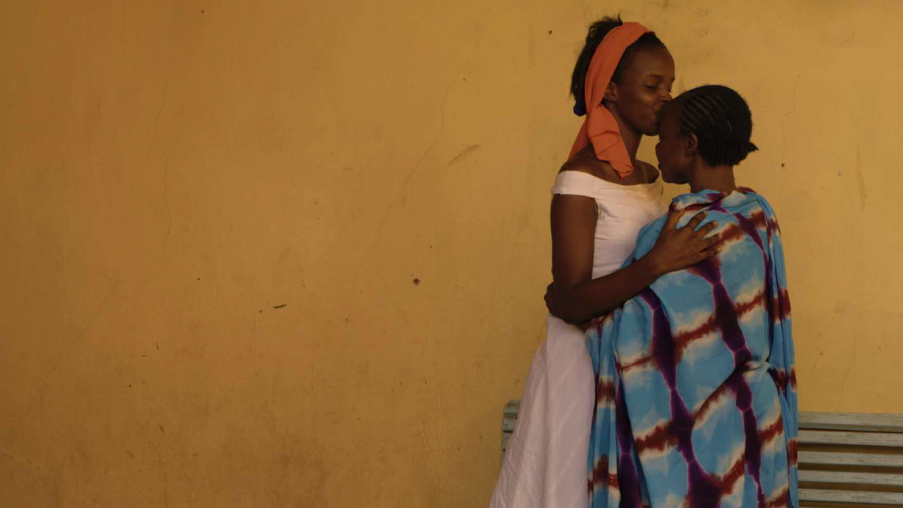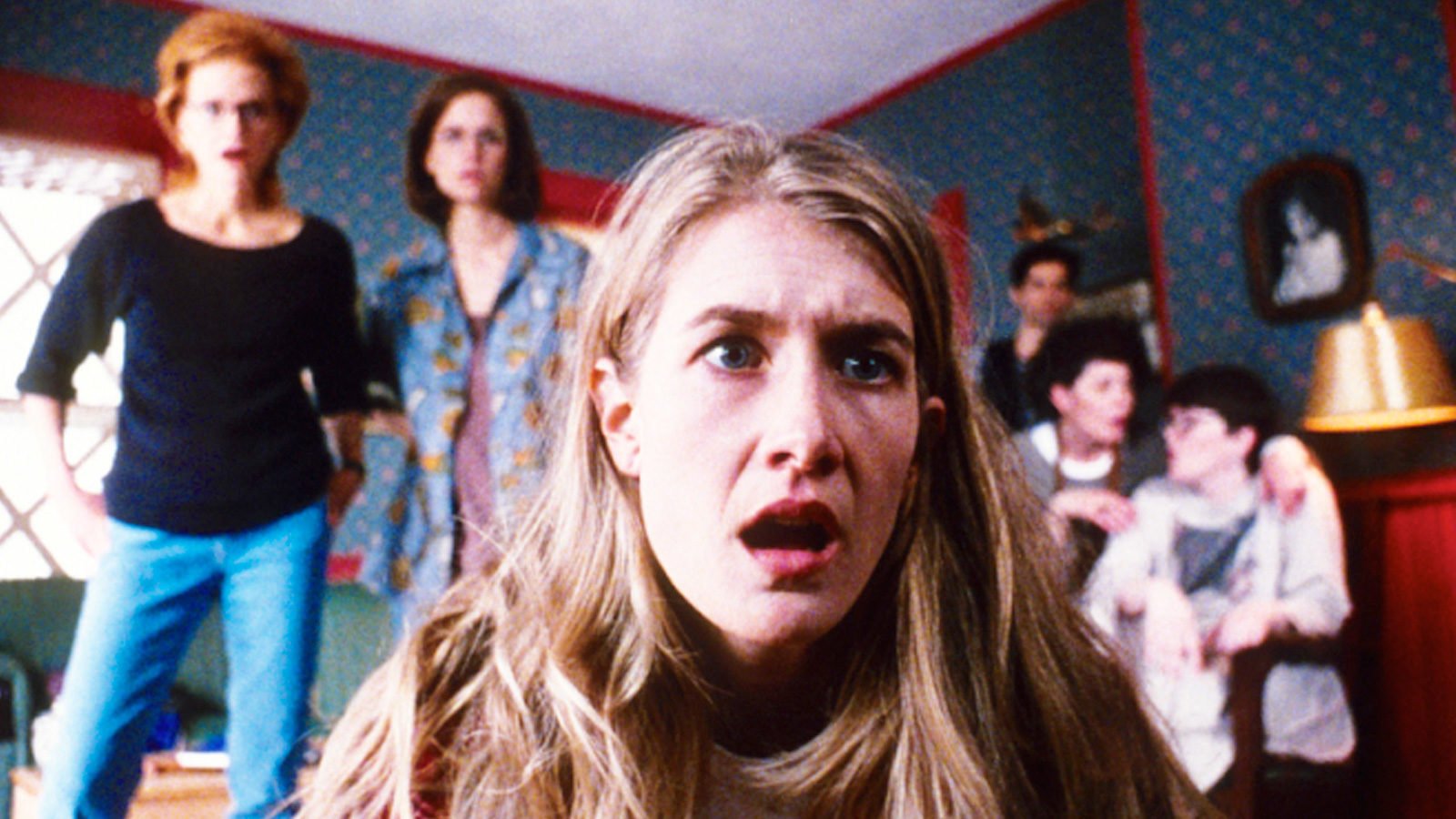The Right to a Goddamned Choice: Movies About Unwanted Pregnancies
It’s funny in a sad, frustrating way that some really amazing movies about women and girls seeking abortions in a hostile landscape have been recently released. Being reminded of how far from level the playing field is in this world is getting tiresome. Those who are saddled with the risk and the pressure of pregnancy, both literal and figurative, are still seen by the opposition as expendable; their own potential is erased before they even realize they missed a period.
The films covered in this article depict different times in recent history, as well as different countries. Each one handles a different version of the unwanted pregnancy and the political discourses surrounding them. There is one constant though: if these fictional characters were able to just make choices about their own healthcare without other people, governments, and institutions trying to stop them, they would be considerably better off.
Happening (2022) is an aptly titled French movie, directed by Audrey Diwan, about a young student Anne (Anamaria Vartolomei) who has the unfortunate luck of finding herself pregnant in the 1950s. She has no intention of keeping the pregnancy and absolutely no desire to. As she tries to find a way to get rid of it, she encounters many people who tell her she has no choice; doctors who lie to her about what shots they’re giving her, friends who suddenly shrink away from her, and a sexual partner who is of no help at all, to put it very mildly. She tries to induce a miscarriage on her own then is crushed when she discovers it didn’t work. A semi-sleazy friend of a friend finally puts her in touch with a whisper network for a female abortionist who operates out of a makeshift office set up in her home. Her rules for the procedure include no screaming in pain or she’ll stop.
The amount of effort Anne puts into not carrying the pregnancy to term is something anyone who is anti-choice needs to consider. There’s a misconception that people seeking abortions are ambivilant or just scared, and that if these necessary medical procedures weren’t so darn easy to get then women would fall on the side of keeping the baby. For Anne, the path of least resistance isn’t an option at all. She has no desire to give up her studies and plans for a child she doesn’t want. “But not instead of a life,” she tells one of the doctors when she mentions she might want to be a mother someday. It’s in these moments that the title of the film becomes a claustrophobic and harrowing omen: what is happening is happening without Anne’s approval or control. If it was up to most of the people around her, it would continue on in that manner.
Happening also dabbles in the world of female sexuality as we see Anne and her friends discussing sex and orgasms and what they want to do but don’t dare. One girl is wildly sexual and talks about stealing dirty books from her brother. Despite her outward sexuality she remains a virgin, breathlessly claiming that she dreams of going further. When so many on the anti-choice side shout vulgar slogans about how women should keep their legs closed (shows what they know, huh? Plenty of sex positions where the legs are closed) and how people who can get pregnant shouldn’t take the risk if they don’t want the consequences, it’s disheartening to see a healthy libido get tamped down rather than expressed and explored. It’s yet another realm where women and others who can get pregnant are excluded despite there being no logical need for the exclusion.
Now for something not remotely different. Mahamat Saleh Haroun’s Lingui, The Sacred Bonds (2021) takes place in modern day Chad, which doesn’t feel too far from midcentury France in some important and aggravating ways. Amina (Achouackh Abakar Souleymane) is a single woman who lives with her fifteen year old daughter Maria (Rihane Khalil Alio). When Maria confesses that she is pregnant, Amina goes on an absolutely unrelenting quest to secure an abortion for her daughter. Both women are part of a Muslim community, and Amina is seen being chided often for small infractions. The imam of their church even scolds her for missing prayer, and when Amina sheepishly says she was too busy for prayer, he tells her that’s not an option.
If anyone’s looking for a theme here, it’s women being told they don’t get to have options.
Happening and Lingui cover similar ground on the hunt for reproductive healthcare. Amina visits doctors who tell her it’s against the law then quietly point her in the direction of the underground. She sees an at-home set-up that is filthy and clinics that operate in the shadows. When she is able to secure a spot for Maria in one of these clinics, clean and professional but not entirely above board, the place is raided. Maria is forced to sprint out into the street at night as to not be arrested. Like Anne, she is desperate to terminate the pregnancy, and she knows that if she falls into authoritative hands at this point, her limited choices will be null and void.
The truly disturbing and heartbreaking story behind Maria’s pregnancy unfolds alongside the anxiety of having to continue on being pregnant, but Amina is a female character for the ages. She does right by her daughter in every way possible then does right by her niece when her sister explains that the girl’s father wants her to undergo circumcision. Lingui, The Sacred Bonds is as much a story about the old ways of life clashing and intermingling with the current of the modern world as it is about healthcare. Amina is forward-thinking and clever; she doesn’t shy away from deception or violence if the situation calls for it. She stares at reality as clear-eyed as possible and looks for loopholes left slightly open. If she had the option to live as she wished and her daughter and niece had the choice to do what they wanted, she wouldn’t resort to underhanded tactics. But she knows what world she lives in and she does what needs to be done.
Alright, this next one is actually completely different. I promise.
Citizen Ruth (1996), a sharp and satirical movie about politicized issues in America, should not be as relevant today as when it came out. We should be watching this film with our retrospective glasses on and wondering how anything so personal and private could become such a circus. Of course, that is not remotely the case.
Ruth (Laura Dern, in what might be her most perfect performance) is a pregnant drug addict in Nebraska. She already has four kids that have been taken away from her and is arrested for her continuing drug use where the judge says he will lessen her sentence if she has an abortion. The story gets coverage on the local news, and the Stoneys, an Evangelical couple played by Kurtwood Smith and Mary Kay Place, bail Ruth out of jail. They take her in and tell her they will support and care for her so she can have her baby though they kick her out when they catch her huffing glue in an alleyway, a wildly hysterical scene despite how it sounds.
A friend of the Stoneys, Diane (Swoozie Kurtz) takes Ruth in and reveals she’s a hard-core abortion rights activist ready to help Ruth get the procedure done. Ruth, who is a shaky and suggestible person in general, is offered $15,000 by the Stoney to keep the pregnancy, a number matched by Diane’s friend Harlan (M.C. Gainey). This story grows in the media and has become a nation-wide debate, which attracts the famous preacher Blaine Gibbons, played by none other than the incomparable Burt Reynolds.
Just a side note to anyone using religion to stop women from having sex: if God doesn’t want us to bone down on dudes, they wouldn’t have made men who look like Burt Reynolds. God knows what they’re doing with that one.
The sad reality of Citizen Ruth is Ruth getting lost in the discourse. Everyone’s offering her money, everyone’s arguing around her. On the morning of her abortion appointment, Ruth has a miscarriage but conceals it till they get to the clinic. She finds the money Harlan promised her and sneaks out the back door while the pro and anti crowd fight each other outside, not even noticing she’s gone.
A big part of the satire in Alexander Payne’s movie is in both sides using someone as a pawn in their politics. We’re supposed to see how everyone just wants Ruth to do what they want her to do. I still enjoy Citizen Ruth a lot but that is where the message feels dated and a bit off for me. This movie came out when the idea of abortion being criminalized was laughable and there was more space to be like, “hey, look, both sides do shitty stuff.” The world and much of our dynamics with issues like abortion have become increasingly black and white, and while comparing the two groups of Citizen Ruth may have been a funny joke in the ‘90s, it’s landing a little harder nowadays. Plus, not for nothing but the pro-choice side in the film still isn’t as horrific as the anti-choice side. At the very least, they’re trying to help Ruth get what she wants, not just what they want.
To everyone out there who runs the risk of getting pregnant and is being reduced to the mere functions of their body, we’re going to fight this. We’re not going backwards. Abortion is healthcare, and it is our right to demand a choice. Don’t let anyone tell you otherwise.




